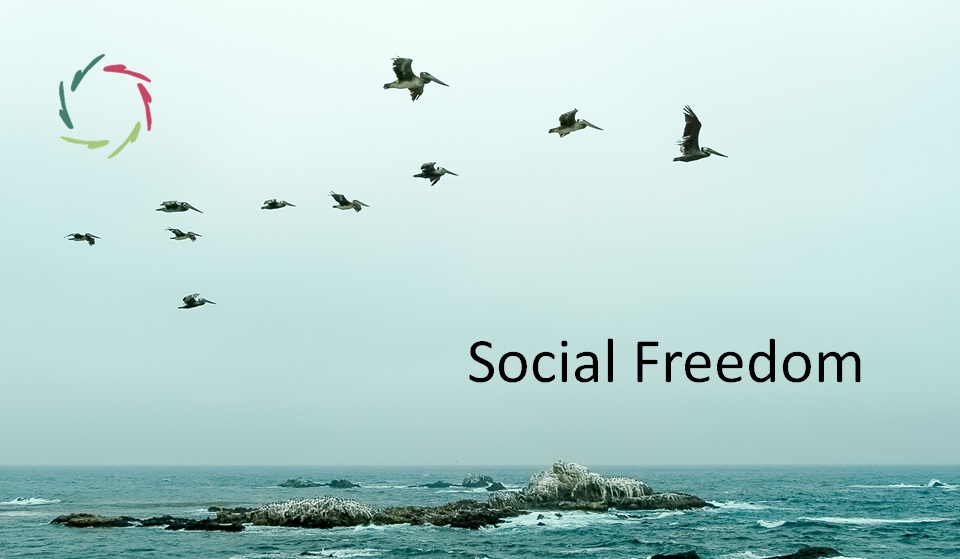Social freedom, a concept deeply rooted in political philosophy and sociology, represents the ability of individuals to act, think, and live independently without undue interference from external forces. It is a cornerstone of modern democratic societies, influencing personal choices, societal norms, and governmental policies. This article delves into the essence of social freedom, its importance, challenges, and the ways societies can strive to uphold it.
Page Contents
ToggleDefining Social Freedom

Social freedom encompasses the autonomy of individuals to make decisions without coercion, while respecting the rights of others. It is not absolute liberty but a balanced approach that considers individual aspirations and collective harmony. Social allows people to express their identities, opinions, and beliefs without fear of oppression or discrimination.
This concept often intersects with political freedom, economic independence, and cultural diversity. It is essential for fostering creativity, innovation, and social progress. However, it also comes with the responsibility to ensure that one’s actions do not harm others or infringe upon their freedoms.
Importance of Social Freedom in Modern Society
Social freedom is a vital element of human dignity and personal fulfillment. It enables individuals to explore their potential, pursue their passions, and contribute to society in meaningful ways. In a socially free environment, people can:
- Express Opinions Freely: Open discourse and the exchange of ideas are fundamental to societal growth. Social ensures that individuals can voice their opinions without fear of retribution.
- Practice Cultural and Religious Beliefs: Social freedom supports diversity by allowing people to celebrate their cultural and religious identities.
- Choose Lifestyles Independently: It ensures that individuals can make personal choices about their careers, relationships, and living conditions without societal or governmental interference.
- Engage in Civic Activities: A socially free society encourages participation in civic duties, such as voting, activism, and community service, fostering a sense of belonging and responsibility.
Challenges to Social Freedom
Despite its significance, social freedom faces numerous challenges in contemporary societies. These include:
Censorship and Oppression
In many parts of the world, governments or powerful entities impose restrictions on free speech, the press, and public expression. This suppression stifles creativity, silences dissent, and undermines the democratic process.
Cultural and Social Norms

Rigid traditions and societal expectations can limit individual freedom. For instance, gender roles, caste systems, and cultural taboos often constrain personal choices and opportunities.
Economic Disparities
Economic inequality can restrict access to resources, education, and opportunities, effectively curbing social freedom for marginalized groups. Poverty and unemployment are significant barriers to personal autonomy.
Technological Surveillance
The digital age has brought concerns about privacy and surveillance. Overreaching governmental or corporate monitoring can infringe upon personal freedoms and create a culture of fear and self-censorship.
The Role of Education in Promoting Social Freedom
Education is a powerful tool for fostering social freedom. It equips individuals with knowledge, critical thinking skills, and the confidence to challenge oppressive structures. Inclusive education that respects diversity and encourages open-mindedness plays a crucial role in shaping a free society.
Educational institutions can promote social freedom by:
- Encouraging dialogue and debate on social issues.
- Providing equal opportunities regardless of race, gender, or socioeconomic status.
- Teaching the importance of empathy, respect, and responsibility.
Technology and Social Freedom
Technology has a dual role in social freedom. On one hand, it has democratized information, empowered individuals, and connected societies. Social media platforms, for example, have become spaces for activism and self-expression. On the other hand, the same tools can be used for surveillance, misinformation, and cyberbullying, threatening individual autonomy.
Striking a balance between technological advancement and privacy protection is crucial. Policies and regulations should aim to safeguard personal data and ensure that technology remains a force for good.
Social Freedom and Human Rights

Social freedom is closely linked to human rights. The Universal Declaration of Human Rights emphasizes the right to freedom of speech, belief, and assembly. Protecting these rights ensures a foundation for social.
However, the implementation of these rights varies globally. In some regions, systemic oppression, discrimination, and political instability hinder progress. Addressing these issues requires international cooperation, advocacy, and grassroots movements.
Building a Socially Free Society
Creating a society that upholds social freedom involves collective effort from individuals, communities, and governments. Key steps include:
- Advocating for Policy Reforms: Laws that fatcai99 protect individual freedoms, such as anti-discrimination acts and data protection laws, are essential.
- Promoting Equality: Efforts to reduce economic and social inequalities can enhance access to opportunities and empower marginalized communities.
- Encouraging Open Communication: Platforms for dialogue and understanding can bridge divides and foster mutual respect.
- Fostering Community Support: Grassroots organizations and community groups play a vital role in supporting individuals and addressing local challenges.
The Interplay Between Social Freedom and Responsibility
Social freedom thrives on a delicate balance between individual autonomy and collective responsibility. While individuals have the right to pursue their interests, they must also consider the impact of their actions on others. Respect for diversity, empathy, and adherence to ethical principles are crucial for maintaining this balance.
Conclusion
Social freedom is a dynamic and evolving concept that underpins the values of modern societies. It empowers individuals to live authentically, contribute to their communities, and challenge oppressive systems. However, achieving and sustaining freedom requires vigilance, education, and collective effort.
In a world of growing complexities, embracing social freedom means fostering a culture of respect, understanding, and equality. By protecting individual rights and addressing societal challenges, we can build a future where everyone can thrive and live with dignity.

